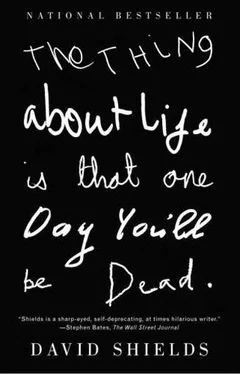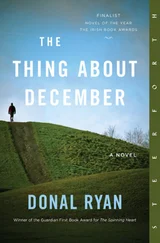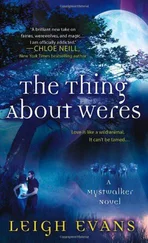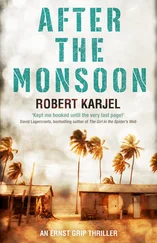Eugène Ysaÿe, a Belgian violinist and composer, said, after his Fourth Sonata was played for him, “Splendid. The finale just a little too fast.”
James Quin, an eighteenth-century British actor, said, “I could wish this tragic scene were over, but I hope to go through it with becoming modesty.”
Replying to the observation that dying must be very hard, the actor Edmund Gwenn said, “It is. But not as hard as farce.”
Flo Ziegfeld said, “Curtain! Fast music! Light! Ready for the finale! Great! The show looks good! The show looks good!”
James Croll, a lifelong teetotaler, said, “I’ll take a wee drop of that. I don’t think there’s much fear of me learning to drink now.”
The eighteenth-century sociologist Auguste Comte said, “What an irreparable loss!”
Da Vinci said, “I have offended God and mankind because my work did not reach the quality it should have.”
The British newspaper tycoon Lord Beaverbrook said, “This is my final word. It is time for me to become an apprentice once more. I have not settled in which direction.”
Machiavelli said, “I desire to go to hell and not heaven. In the former place I shall enjoy the company of popes, kings, and princes, while in the latter are only beggars, monks, and apostles.”
Looking at a lamp that flared at his bedside, Voltaire said, “The flames already?”
Kansas City Chiefs running back Stone Johnson, killed in a football game, said, “Oh my God, oh my God! Where’s my head? Where’s my head?”
The American Civil War commander General John Sedgwick, who was killed at the battle of Spotsylvania in 1864, looked over a parapet at the Confederate troops and said, “They couldn’t hit an elephant at this dist—”
Vicomte de Turenne, a French soldier killed at the battle of Sasbach in 1675, said, “I did not mean to be killed today.”
Initially, the rope broke when the Russian revolutionary Bestoujeff was hanged; “Nothing succeeds with me,” he said. “Even here I meet with disappointment.”
Joseph II, Holy Roman Emperor, said, “Let my epitaph be, ‘Here lies Joseph, who was unsuccessful in all his undertakings.’”
Nicholas Boileau, a French critic, responding to a playwright who asked Boileau to read his new play, said, “Do you wish to hasten my last hour?”
Oscar Wilde, dying in a tacky Paris hotel, said, “My wallpaper and I are fighting a duel to the death. One or the other of us has to go.”
Charles d’Evereruard, a gourmet, was asked by his confessor if he would be reconciled with Christ; d’Evereruard replied, “With all my heart I would fain be reconciled with my stomach, which no longer performs its usual functions.”
Frédéric Moyse, guillotined for killing his own son, said, “What, would you execute the father of a family?”
Longfellow said to his sister, “Now I know I must be very ill, since you have been sent for.”
George Fordyce, a physician, told his daughter, who had been reading to him, “Stop. Go out of the room. I am about to die.”
Baron Georges Cuvier, a zoologist, said to his daughter, who was drinking a glass of lemonade he had refused, “It is delightful to see those whom I love still able to swallow.”
O. O. McIntyre, an American newspaper columnist, said to his wife, “Snooks, will you please turn this way? I like to look at your face.”
Lady Astor, the first woman member of British Parliament, surrounded by her entire family on her deathbed, said, “Am I dying, or is this my birthday?”
Goethe said, “More light.”
The Indian chief Crowfoot said, “A little while and I will be gone from you. Whither I cannot tell. From nowhere we come, into nowhere we go. What is life? It is the flash of a firefly in the night. It is the breath of a buffalo in the wintertime. It is the little shadow which runs across the grass and loses itself in the sunset.”
Buddha said, “Decay is inherent in all things.”
Gertrude Stein asked Alice B. Toklas, “What is the answer?” When Toklas didn’t respond, Stein laughed and said, “In that case, what is the question?”
After finishing a poem on New Year’s Eve about New Year’s Day, Johann Georg Jacobi said, “I shall not in fact see the New Year which I have just commemorated.”
Andrew Bradford, the publisher of Philadelphia’s first newspaper, said, “Oh Lord, forgive the errata!”
Dominique Bouhours, a seventeenth-century French Jesuit who was the leading grammarian of his day, said, “I am about to—or I am going to—die; either expression is used.”
Replying to a question about whether he was in pain, Henry Prince of Wales, son of James I, said, “I would say ‘somewhat,’ but I cannot utter it.”
Karl Marx, asked by his housekeeper if he had a last message for the world, said, “Go on, get out. Last words are for fools who haven’t said enough.”
Pancho Villa said, “Don’t let it end like this. Tell them I said something.”
“In the event of my death,” my mother’s will said, “I would like to have my body cremated and the ashes disposed of in the simplest way possible. My first choice would have been to donate my heart, kidneys, and cornea for transplants. However, it is not possible to donate the organs of someone with cancer. I realize that cremation is not in accordance with Jewish law, but I think it is the most sensible method of disposing of a lifeless body. Although I do not want a religious memorial service, I hope it is helpful to family and friends to have an informal gathering of people, so that each may draw strength from one another. I leave this world without regrets or bitterness of any kind. I have had a good life. May the future be kind to each of you. Shalom.” Her equanimity in the face of mortality.
What will be my father’s last words?
What will be mine?
Bloodline to Star Power (iii)
In the early 1970s, my half sister, Emily, was working as a maid at a motel in Oregon. “Don’t know how it happened,” my father explained, “but Pepi and his wife were guests at this posh place.” Emily introduced herself, told him who she was, and Schildkraut gave her one of his “stylish Borsalino felt hats, which he wore in rakish over-one-eye European style—always the matinee idol—as a souvenir.” She gave the hat to my father, who “had it in the closet for years, but it must have got thrown out when I moved after your mother’s death.”
I tell this story to Emily, who writes back, “Concerning the story about Joseph Schildkraut giving me a hat: that’s a total mystery to me! I did work for a short time in a hotel in Cannon Beach, Oregon. I have no memory of this mysterious visitor—or even seeing him—except in the movie The Diary of Anne Frank. Either I was that spaced-out in those days and have blocked out this significant event, or once again our Pop has fabricated another yarn for you from his rich imagination. Sorry.”
I relay what Emily has said back to my father, who wants to know: “Then where did the Borsalino hat come from? I distinctly remember Emily telling us that when she learned Joseph was a guest at the Oregon resort she was working at, she went over to him, told him her father’s original name, they talked for a few minutes, and then Pepi gave her the hat. He wore hats like a Borsalino in his stage and screen roles back in the days when all male actors wore hats. And Borsalino, an expensive Italian-made hat, would be his style.”
Then, shortly afterward, in a truly weird coincidence, an old friend of our family’s calls my father and asks him to pick up two boxes of odds and ends that my father had left with them many years ago. “The lid flipped open on one of the boxes, and on top there was the hat Schildkraut gave to Emily at that Oregon coast resort back in the early ’70s. Thought you’d be interested to learn about my (accidental) archaeological finding.”
Читать дальше












